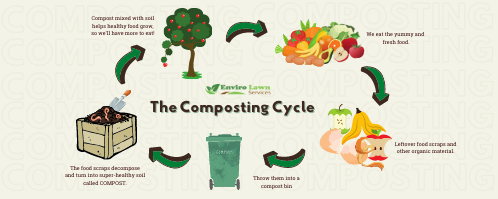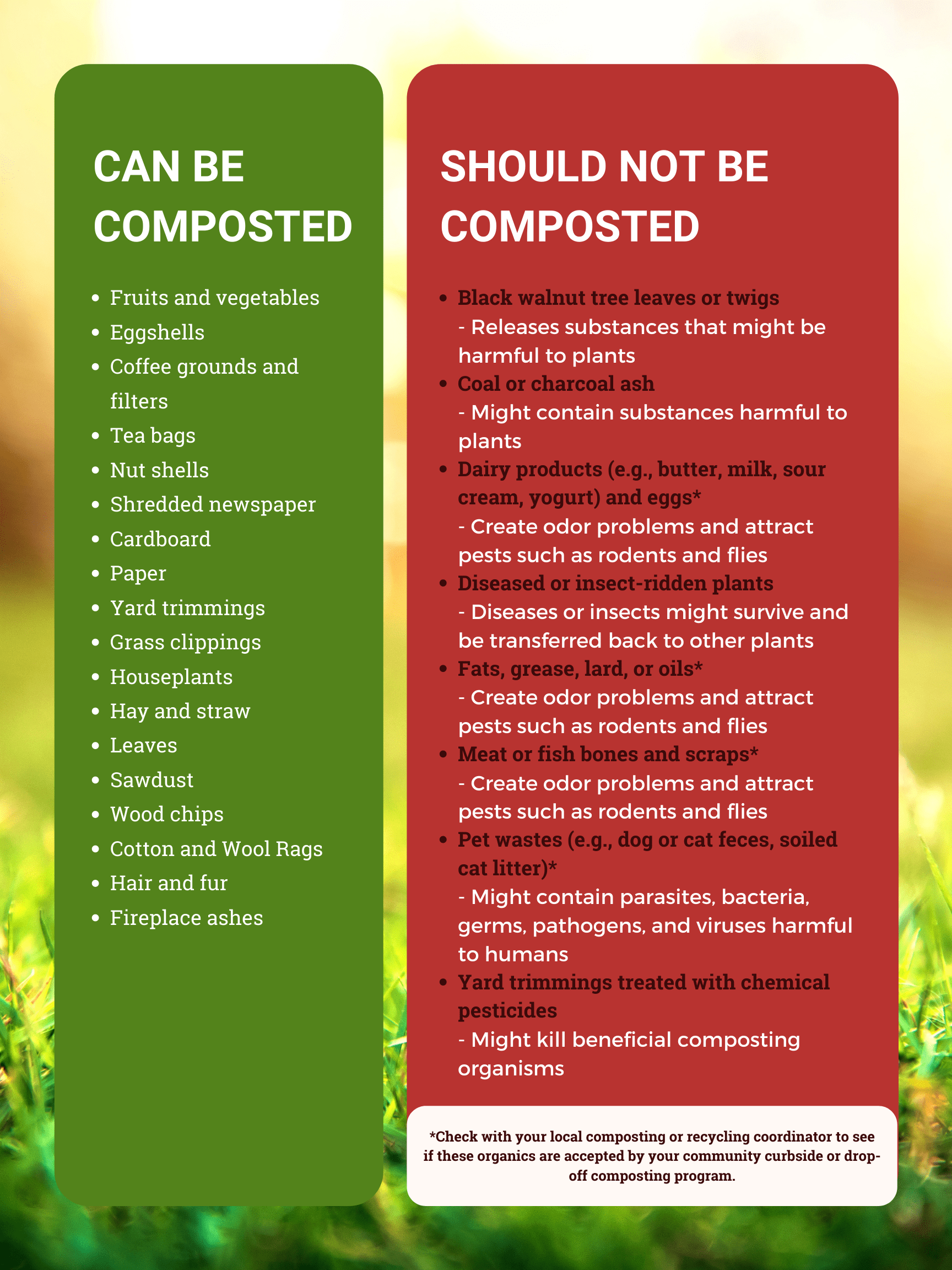
Composting is the natural process of recycling organic matter, such as leaves and food scraps, into a valuable fertilizer that can enrich soil and plants. Anything that grows decomposes eventually; composting simply speeds up the process by providing an ideal environment for bacteria, fungi, and other decomposing organisms (such as worms, sowbugs, and nematodes) to do their work. The resulting decomposed matter, which often ends up looking like fertile garden soil, is called compost. Fondly referred to by farmers as “black gold,” compost is rich in nutrients and can be used for gardening, horticulture, and agriculture.
All composting requires three basic ingredients:
Your compost pile should have an equal amount of browns to greens. You should also alternate layers of organic materials of different-sized particles. The brown materials provide carbon for your compost, the green materials provide nitrogen, and the water provides moisture to help break down the organic matter.

If you do not have space for an outdoor compost pile, you can compost materials indoors using a special type of bin, which you can buy at a local hardware store, gardening supplies store, or make yourself. Remember to tend your pile and keep track of what you throw in. A properly managed compost bin will not attract pests or rodents and will not smell bad. Your compost should be ready in two to five weeks.
Sources:
Enviro Lawn Services donates $50.00 in your name when you sign up for our ELS Lawn Maintenance Program. We can also do an additional 5% of total sale for any special project. You can select one of our partner organizations:
As a true community landscape contractor, we are always giving back.
Contact us for more information.